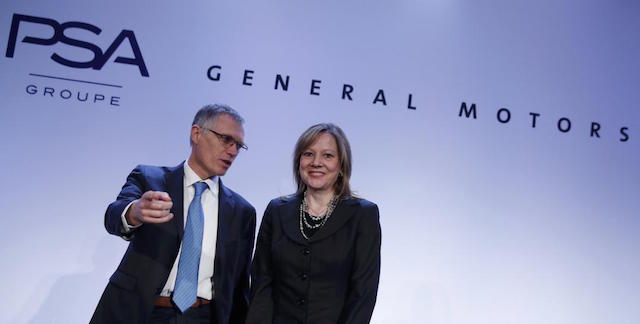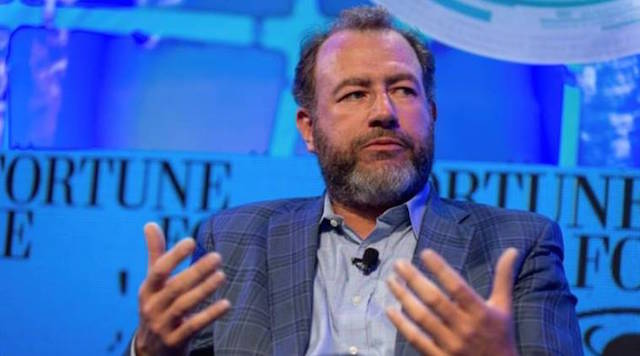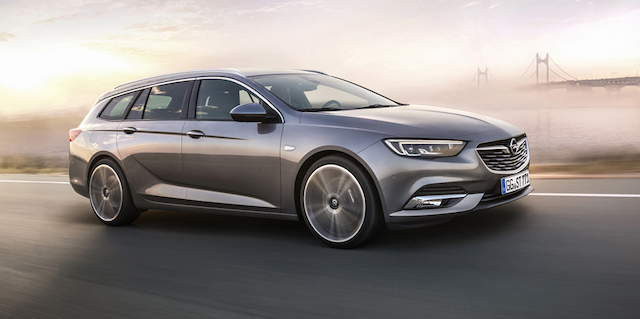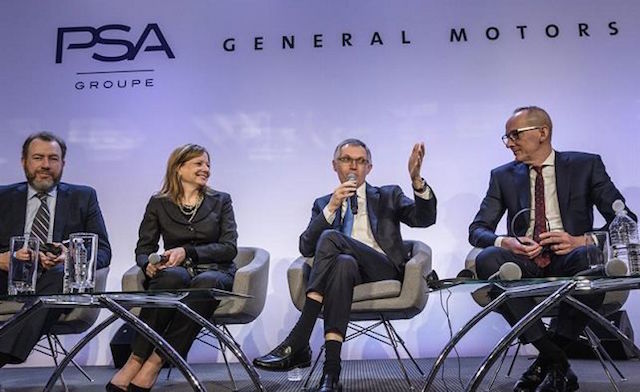
Above: Peugeot/Citroen CEO Carlos Tavares and GM’s Mary Barra
There are more questions than answers for New Zealand now that Peugeot/Citroen parent PSA Group has bought German brand Opel and British brand Vauxhall from General Motors.
Firstly, will the PSA Group take Peugeot and Citroen in NZ and Australia away from the current distributor, Sime Darby? Secondly, will PSA Group move to bring the Opel brand to both countries?
If so, where would that leave Holden, now dependent on Opel architecture for its Astra and upcoming Commodore (rebadged Insignia) passenger cars?
Holden Australia said in a statement that it expected the Astra and new-generation Commodore to remain in the two Downunder markets.
“Holden and Opel have had close ties for many years and delivered fantastic vehicles to Australian (and NZ) customers, including the current all-new Astra and the next-generation Commodore due in 2018. The good news is these product programmes are not affected at all,” the statement said.

“We will continue to work closely with Opel and GM to deliver our vehicle plans with excellence and precision. This includes future, new right-hand-drive SUVs like the Equinox and Acadia that were engineered specifically for right-hand drive markets.” Equinox and Acadia will come from GM plants in North America.
Both the PSA Group and GM confirmed “existing supply agreements” for Holden would continue. But when does “existing” end? PSA Group CEO Carlos Tavares is reported to be interested in expanding the Opel brand globally.
Would more of a worldwide presence mean the Astra badge would be exclusively Opel’s? Industry analysts suggest that Holden will eventually lose use of both the Astra and Commodore names on Opel donor cars.
The NZ$3.3 billion sale of Opel and Vauxhall means the PSA Group is now the second largest carmaker in Europe, with a 17 per cent market share against the leading Volkswagen Group’s 24 per cent. The Renault-Nissan Alliance is third.
New Zealander Dan Ammann, a GM President, said the company decided to sell Opel because Europe’s changing geo-political and regulatory climate demands more investment at a time when there is a greater need to focus on North America, China and emerging technologies such as autonomous vehicles.
“By immediately improving Genral Motors’ overall business profile, the transaction will enable us to increase our returns to shareholders,” he said.

“Just as importantly, we will be able to more sharply focus our time and resources on higher-growth, higher-return investments in our core automotive business and in new technologies that are transforming our industry.”
The PSA Group will continue under GM licence to sell existing and confirmed Opel/Vauxhall models in Europe. Further down the line, all Opel and Vauxhall models will be built on PSA platforms.
Asked if the Opel and Vauxhall brands can be sold successfully alongside Peugeot and Citroen, Tavares said the advantages of each brand is clear.
“The positioning of each is very clear. We need to be consistent, yes. Our brand positioning is clear and we will reinforce what we believe has been a very successful repositioning of Opel by Karl-Thomas Neumann.

“This is a German brand. We have the French brands and now a German brand. And we might not like it, but we have to recognise that some customers want French brands, some want German, some want Asian. It is very important that we have [at least] the French and German brands in our portfolio,” Tavares said.
The Opel/Vauxhall operation has been a drag on GM earnings for around 16 years. Mary Barra, the CEO of GM, said the sale was a “win-win” for Opel/Vauxhall.
“I think when we look at the Opel/Vauxhall operations, what we saw, was an opportunity to strengthen the business. Going forward, there were changes to customer expectations that made it very clear there was a need for major change to ensure we could keep putting award-winning vehicles on the road.”
Workers at Vauxhall’s plant in Ellesmere Port, near Liverpool, fear the sale will result in job loses. There is also uncertainty about the effects of Brexit. The area voted to leave the EU in last year’s British referendum.
One worker said the German workers at Opel would fare much better from the takeover. “The German unions are very forceful,” he said. “Not like ours, not since they were smashed in the 80s.”
